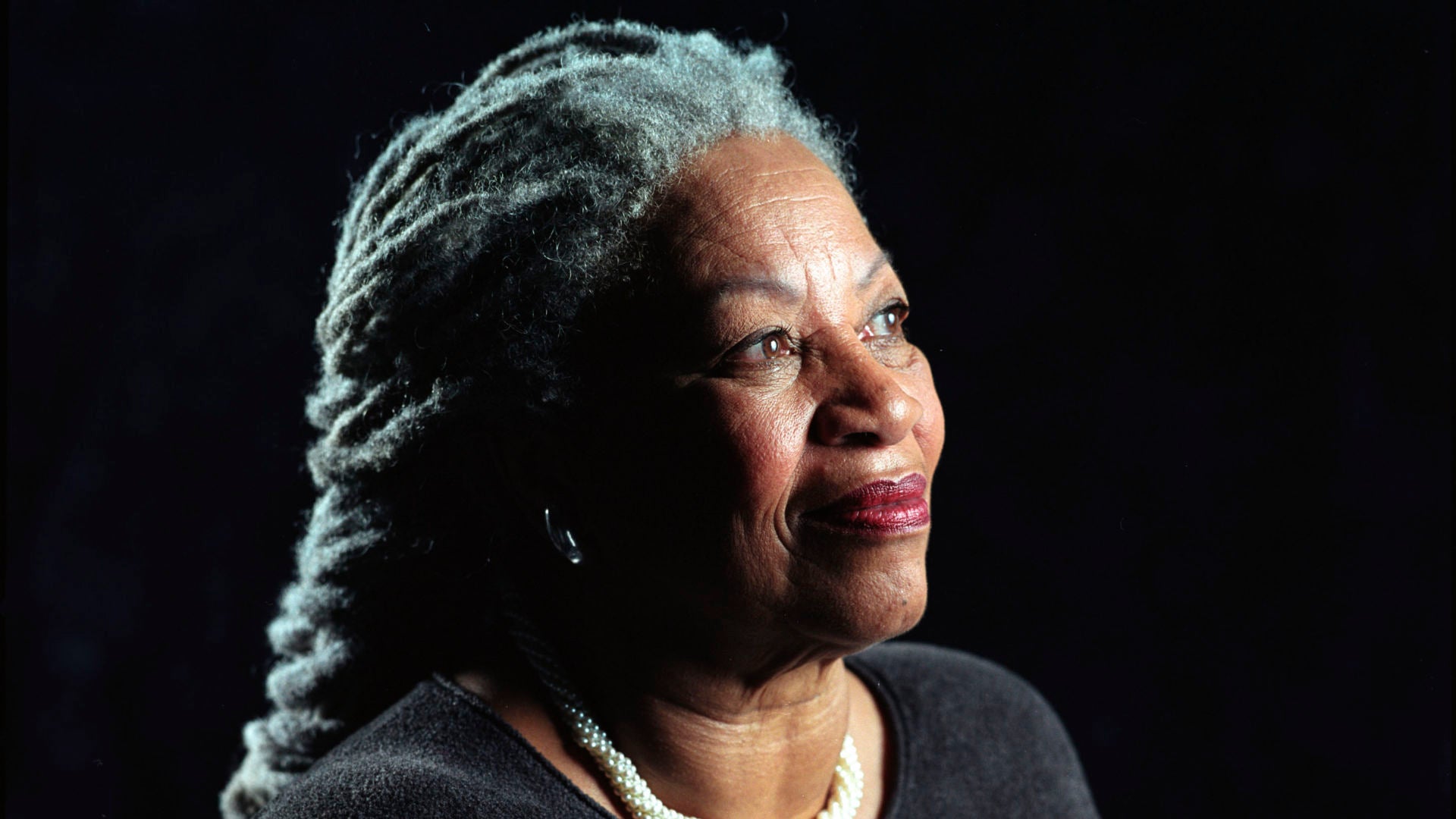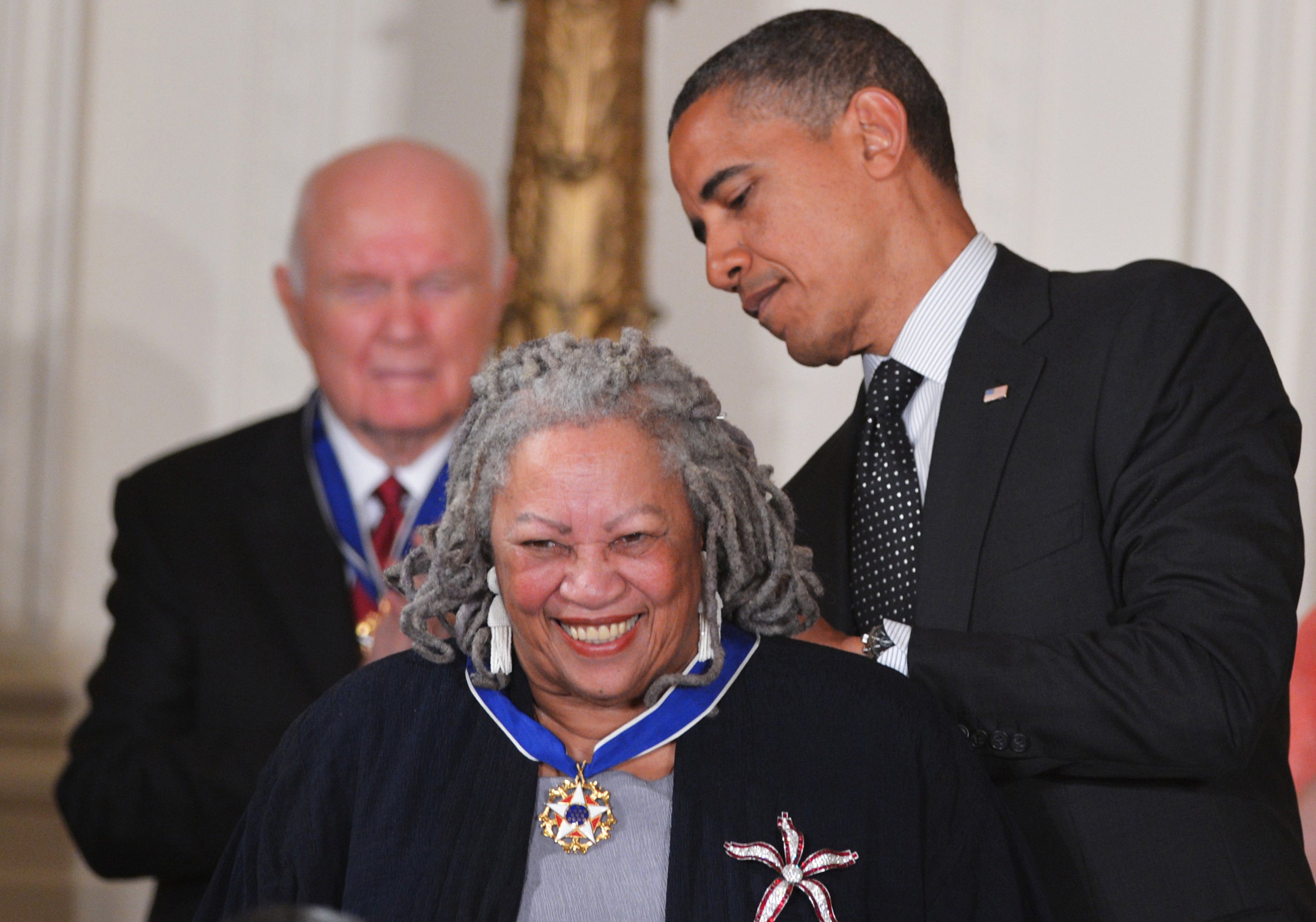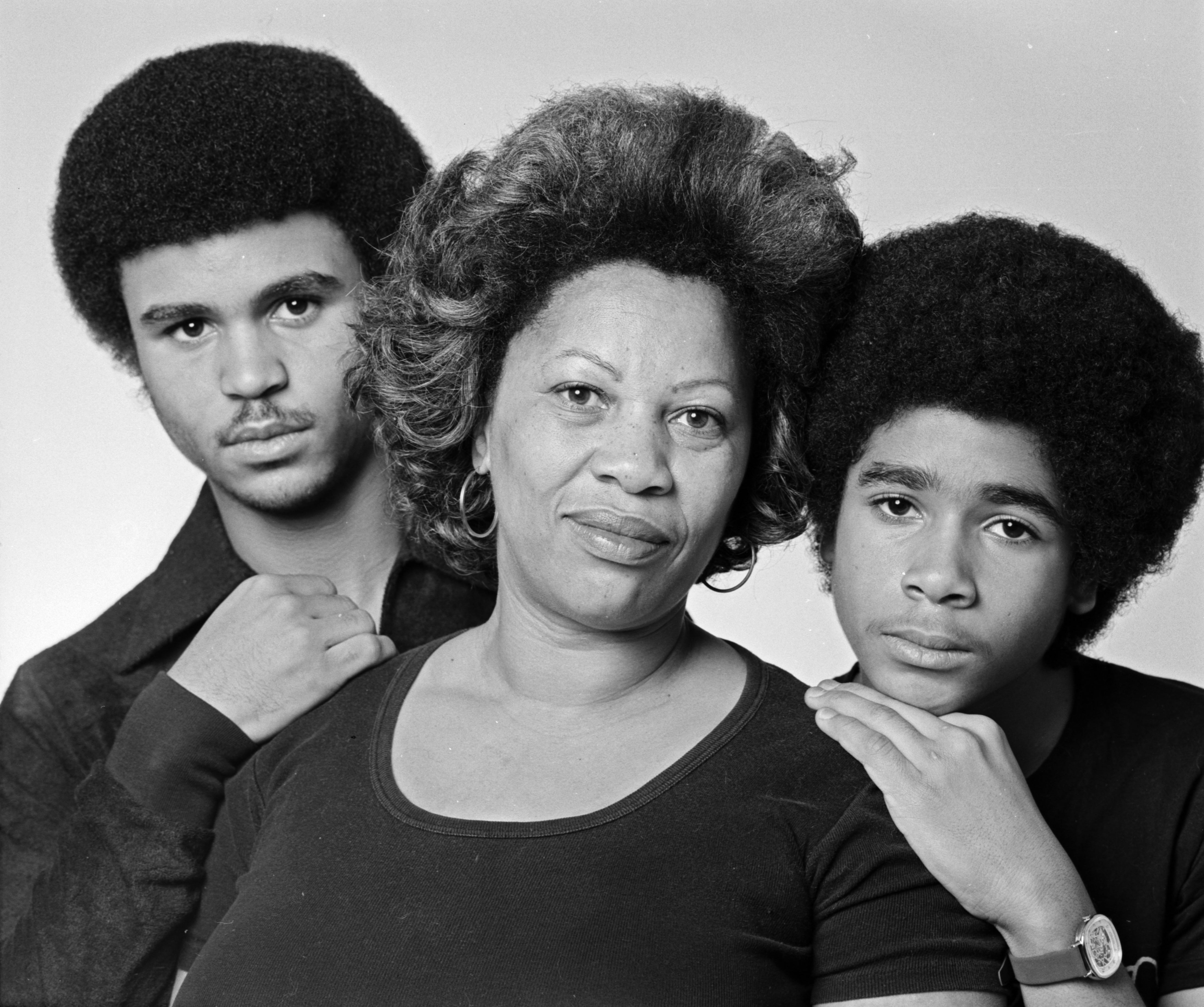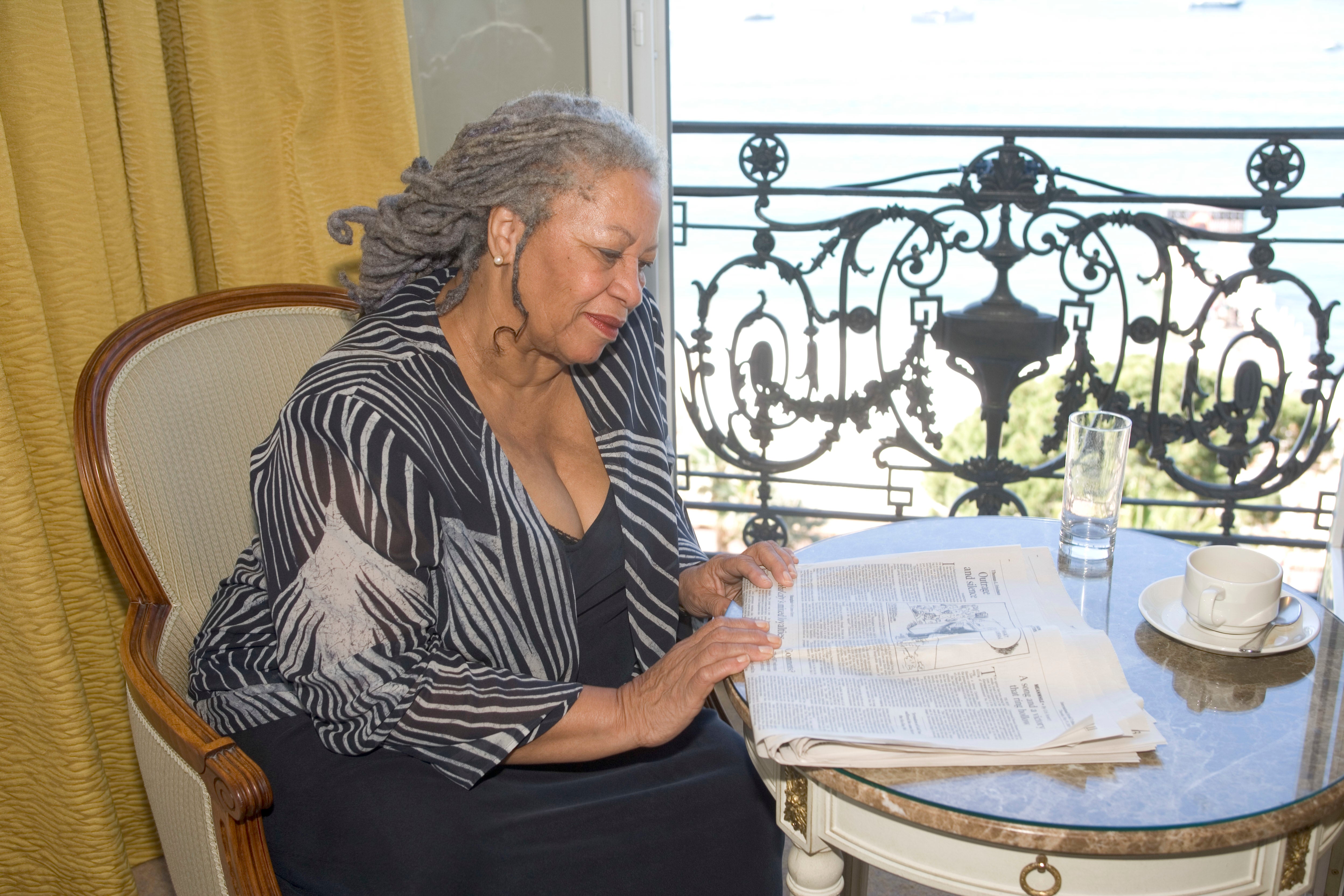
It’s been just over a day since we learned of Toni Morrison’s passing and still, it’s difficult to find the words. After all, what words could possibly befit a woman who weaved magic with hers?
Where do you even begin?
Soon after the news broke, Barack Obama – who, in 2012, beamed with pride while presenting her with the Presidential Medal of Freedom and said, “I remember reading Song of Solomon when I was a kid and not just trying to figure out how to write, but also, how to be and how to think” – took to social media to share his thoughts about her legacy.

Along with stating the obvious (that she was a national treasure), he wrote: “Time is no match for Toni Morrison. In her writing, she sometimes toyed with it, warping and creasing it, bending it to her masterful will.” He continued. “Her writing was not just beautiful, but meaningful – a challenge to our conscience and a call to greater empathy. She was as good a storyteller, as captivating, in person as she was on the page.”
Hours later, as I sat for a roundtable interview with Oprah Winfrey, she smiled when recalling her memories.
“What she represented, for me, is this idea that where we’ve come from and everything that came before us, lives in each of us in such a way that we have a responsibility to carry it forward,” Winfrey said. “[During] one of my first conversations with her [and while] I don’t remember what the question was, she said, ‘I’ve always known I was gallant.’ Her assuredness about the way she could tell stories and her ability to use the language to affect us all is what I loved about her.”
Gallant.
That’s the word she used to describe herself.
Webster’s defines gallant as splendid, stately, spirited, brave.
Yes, that, was Toni Morrison.
It’s difficult to speak of her, to write about her, in the past tense. Perhaps that’s because in so many ways and on so many pages, she is and shall always be with us.
Born in Lorain, Ohio, on February 18, 1931, she was named Chole Anthony Wofford. From early on, she was intrigued by words and was, of course, an avid reader. Released in June, the documentary, The Pieces I Am, heard Morrison recall a time in her childhood when she and her sister would write words they’d heard or seen out in the world onto the ground near their house, with a pebble. One day, while etching the letters “f-u-c…” onto the sidewalk, their mother caught them and insisted that they remove it.
That’s the moment she discovered the power of words.
Morrison attended Howard University, where she majored in English and was drawn to the drama department. After graduation, she attended graduate school at Cornell and then became a teacher, returning to Howard. It was during that time in her life that she got married, became the mother of two sons – Harold and Slade, the latter of whom she lost nearly a decade ago – and later, divorced.

As an editor at Random House, she sharpened the work of others. There was Muhammad Ali and Angela Davis, Toni Cade Bambara and Gayl Jones, to name a few. All the while, she was doing her own writing, too, but not many were aware…until 1970, when, at 39, she introduced the world to a little girl named Pecola Breedlove. Set in her hometown of Lorain, The Bluest Eye was a revelation. It still is.
And it was just the beginning for Toni Morrison, the writer.
She wrote about us, vividly. Sula. We were the center of her narratives. Song of Solomon. She was not concerned with the “white gaze.” Tar Baby. Morrison wrote of interior, generational pain, about slavery and the insidiousness of racism. Beloved. She was a master of language. Jazz. Her words touched us. Paradise. Her prose made us think and feel. Love. She taught us to read and understand. A Mercy.
Throughout her literary career, she was an early riser – before the sun, in fact. That was a habit she established as a single, working mother. Not only was she a writer, Morrison was a master storyteller, the type who drew you in and made you wonder. In many cases, you had to read her words, sentences and phrases more than once. She knew that. That was her mission, for us to dive in, completely. To be immersed in the story, into another world.
Over the years, she was lauded by readers from every corner of the world. There were the critics, too, many of whom questioned the subject of her narratives. But still, she continued to write. In fact, she didn’t seem bothered. She always spoke up about her views and left us with questions.
And her quotes, are legendary.
In 1993, she became the first Black woman to be awarded the Nobel Peace Prize for Literature. At the time of the announcement, she was asked to explain what set her apart from others. “I think I write well,” she said, “and I think I have a distinctive voice. That’s what makes writing this very difficult, very risky, very powerful enterprise.”

We will always honor her and be inspired by her. She lived 88 years, but in her words, she is eternal. Not only did she educate and inspire, but she left us her stories and a roadmap to follow. And as poet Sonia Sanchez advised in The Pieces of Me, “In order to survive, you should re-read Toni every 10 years, because every 10 or 15 years, we have to reimagine ourselves on this American landscape.”
What a life.
What a legacy.
What a gift we had in her.
We thank God for Toni Morrison…and may He bless her soul, eternally.